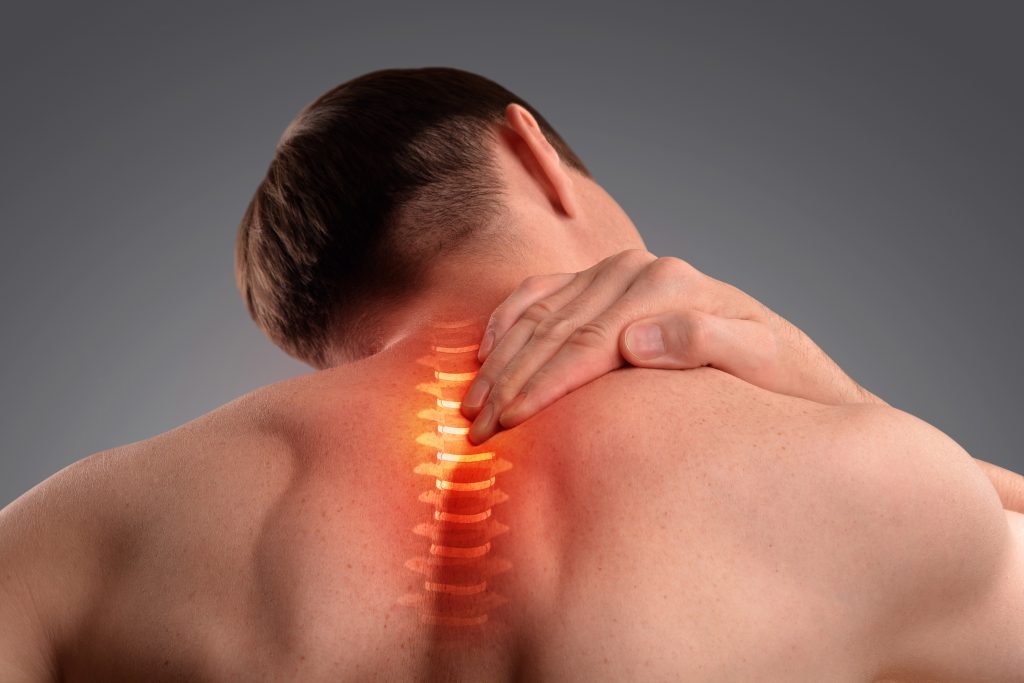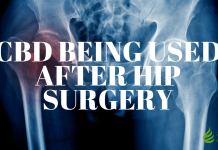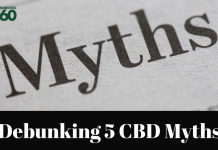
Many people ask themselves if they should consider taking CBD.
Now that this compound is becoming more and more accepted by the medical industry, it seems like everyone in America is beginning to find the relief that they’ve been seeking with this natural, holistic cannabinoid. But, does that mean that CBD is right for you?
For those out there dealing with symptoms that just won’t go away, it’s true that CBD might be able to help.
Many people find that CBD helps them manage pain, stress and even digestive troubles. The key is consistency and finding the right product.
While it’s not believed that everybody needs CBD, it is true that certain people dealing with chronic conditions may be able to benefit from it tremendously.
If you’re wondering if CBD can actually help you with your symptoms, we’ve provided an extensive list of ailments that CBD has the potential to manage.
If you do determine that you’d like to give CBD a try, we’re going to walk you through the steps of getting started so that you can hopefully find relief as quickly as possible.
Do I Need a Reason to Use CBD?
While CBD is legal and considered relatively safe to consume daily, it’s still best to take it if you’re trying to treat a specific condition or symptom. That’s because CBD is thought to directly correlate to a deficiency of cannabinoids in the body.
The Body’s Endocannabinoid System and Cannabinoid Deficiency

The body of every mammal has what’s called an endocannabinoid system. When functioning properly, this system produces an abundance of cannabinoids.
These cannabinoids are sent to cannabinoid receptors that are found along the body. Once these cannabinoids bond with these receptors, they stimulate the regulation of crucial bodily processes including function of the immune system, mood, hormonal balance and pain tolerance.
It’s now believed that many people experience certain conditions because their body simply isn’t producing enough cannabinoids.
When a person is deficient, they may find that they develop a wide range of symptoms including mood problems and chronic pain. Or, they may develop a condition that seems almost impossible to treat such as IBS.
By supplying your body with cannabinoids through CBD, you’re giving your body what it’s deficient in.
This can allow the body to once again regulate the body’s many important processes, ultimately leading to homeostasis, the state in which all of the body’s processes are functioning properly and a general feeling of well-being is experienced.
Therefore, it’s safe to say that not everyone needs CBD. If you generally feel good both mentally and physically, it’s possible that you don’t have a cannabinoid deficiency, and therefore won’t benefit from taking CBD.
What are the Reasons for Taking CBD?
Because of the wide variety of processes that the endocannabinoid system is in charge of regulating, there are plenty of ailments that might indicate a cannabinoid deficiency.
CBD for Bedtime
If you have trouble getting the proper amount of shuteye each night no matter how mindful you are of maintaining good sleep habits, it’s possible that your body doesn’t produce enough melatonin.
CBD helps regulate our sleep cycle by stimulating the secretion of melatonin, a hormone that tells our bodies that it’s time to go to bed.
CBD also regulates other neurotransmitters that must maintain a certain balance in order for us to fall asleep easily and stay asleep for the duration of the night.
CBD for Headaches
Headaches happen from time to time, but some people experience chronic headaches that dramatically interfere with their quality of life.
If you suffer from chronic headaches or migraines, CBD might be able to help you tremendously.
CBD contains analgesic properties that block the pain receptors that inform us that we’re experiencing pain. CBD can also ease muscle tension that causes headache pain.
CBD’s Anti-Inflammation Benefits

The endocannabinoid system helps maintain healthy immune function, which includes keeping inflammation levels at a minimum.
When the body perceives itself as injured, the affected area becomes inflamed, causing the area to feel swollen, tender and difficult to move.
Some conditions cause chronic inflammation despite an actual injury. These conditions include arthritis and fibromyalgia.
Because CBD can help with the body’s ability to regulate immune function, it might be able to treat chronic inflammation that creates potentially debilitating pain.
If your joints or muscles tend to ache on a regular basis, you might want to consider grabbing some hemp derived CBD in order to find the relief that you deserve.
CBD for High Anxiety
CBD is perhaps most widely used for relief from anxiety. Anxiety results from a sustained “fight or flight” response that causes the nervous system to be constantly engaged.
Those who have anxiety experience hyper vigilance as even the most subtle stimuli can create an anxiety response. CBD helps manage the secretion of cortisol that leads to this “fight or flight” response so that you may manage anxiety in a much calmer and more rational manner.
In fact, CBD has been found to have the potential to treat a wide range of anxiety disorders including PTSD and social anxiety.
CBD’s Fight Agaisnt Fatigue
Believe it or not, certain strains of CBD may actually give your energy levels a much-needed boost. If you feel lethargic and unmotivated, sativa strains may act as a gentle stimulant.
Also, consuming CBD in smaller doses during the day can also increase overall alertness and reduce daytime sleepiness.
Helping to ensure you are actually tired at night when you’re supposed to sleep.
While many people turn to coffee and energy drinks when feeling fatigued, these products can lead to edginess while overstimulating the nervous system. It seems that CBD can boost energy without making you feel wired or uncomfortably stimulated.
CBD for Depression

The endocannabinoid system is responsible for regulating mood, and this includes balancing the level of serotonin that’s produced in the brain. Serotonin is associated with feeling happy and content with life.
Those who don’t produce enough serotonin are likely to experience depression. Taking CBD might naturally boost serotonin levels in a way that’s much more gentle than certain antidepressant drugs.
CBD’s Ability to Relieve Stress
Stress and anxiety are often lumped together in the same category, but they’re actually different.
While anxiety is classified as a mood disorder, chronic stress tends to result from being overwhelmed with specific circumstances in one’s life. If a demanding work or family life is taking its toll on your health, CBD might be able to calm your nerves.
That’s because it balances the neurotransmitters so that we can deal with stressful situations in a much more efficient way.
CBD’s Cure to an Upset Stomach
It’s now believed that CBD might be able to help with certain digestive disorders such as IBS. That’s because the intestines have CB2 receptors that require cannabinoids in order to stimulate healing. With its anti-inflammatory properties, CBD can also soothe the digestive system.
CBD’s Benefits for Nausea
CBD has been found to be very helpful to those who suffer from nausea due to pregnancy or another condition. CBD may prevent vomiting as well because of the way in which it calms the upper digestive tract.
CBD’s Effects on Seizure Patients
New evidence suggests that CBD may be helpful for those who suffer from epilepsy because of the way in which it calms the neuropathways in the brain. In fact, a CBD-based drug has been approved by the FDA to treat pediatric epilepsy based on recent studies supporting the theory that this cannabinoid can prevent seizures.
How to Take CBD
Now that you know about the many ways in which CBD may help you feel better, let’s get into the process of obtaining and taking it properly.
Tell Your Doctor

Before purchasing a CBD product to treat an ailment, make sure that you speak to your doctor so that they can make sure that it’s safe for you while making suggestions based on your unique medical history.
Find a Good Brand
To reap the most benefits that CBD has to offer, finding a respected, trusted brand is crucial. Do some research and look for lab results on a company’s website.
These lab results are performed by third-party laboratories and tell you everything that you need to know regarding the potency and quality of the hemp that they’re using.
Determine the Right Dosage Level
When it comes to selecting the right dosage level, it’s suggested that you start with the smallest dose recommended by the company and only work your way up as needed. CBD hasn’t been found to cause overdose in high doses, but you still want to start slow, in case it makes you feel drowsy.
In the end, The Reason Could Be CBD
If you believe that you have a good reason for taking CBD, speak to your doctor and do some research to find the most effective product for your needs.












